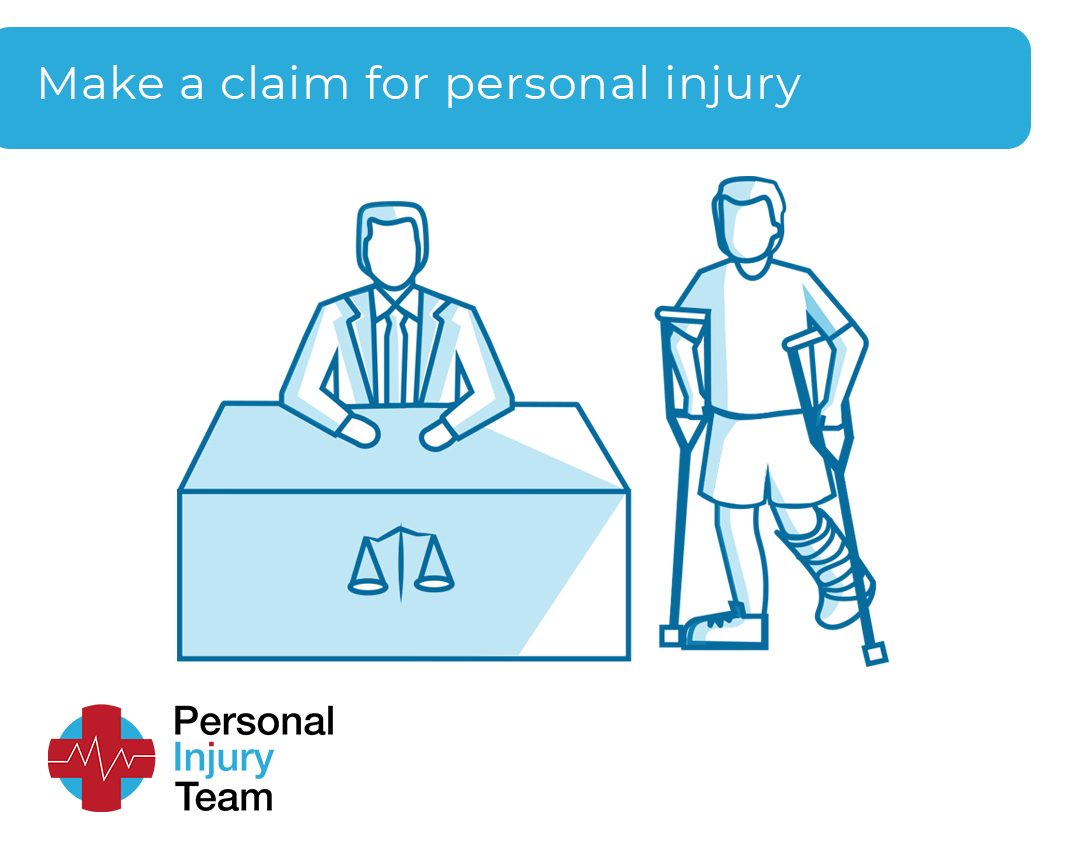A police injury claim for an injury while on duty seeks compensation for the effects of the injury today and in the future. A police officer may be injured in an accident that was not wholly their fault while on duty and may be able to claim compensation.
Every police officer on duty is at work, and if they suffer a personal injury, they could have a workplace injury compensation claim. A police officer could suffer an injury in a road traffic accident, an assault or in a slip, trip and fall accident and may have a claim for compensation.
The other road users, the property owner and members of the public owe you a duty of care. If they breach that duty of care and cause you a personal injury, then you may have a personal injury compensation claim.
A No Win No Fee personal injury solicitor can look at your case if you are injured while on duty as a police officer and see if you have a valid police injury compensation claim.
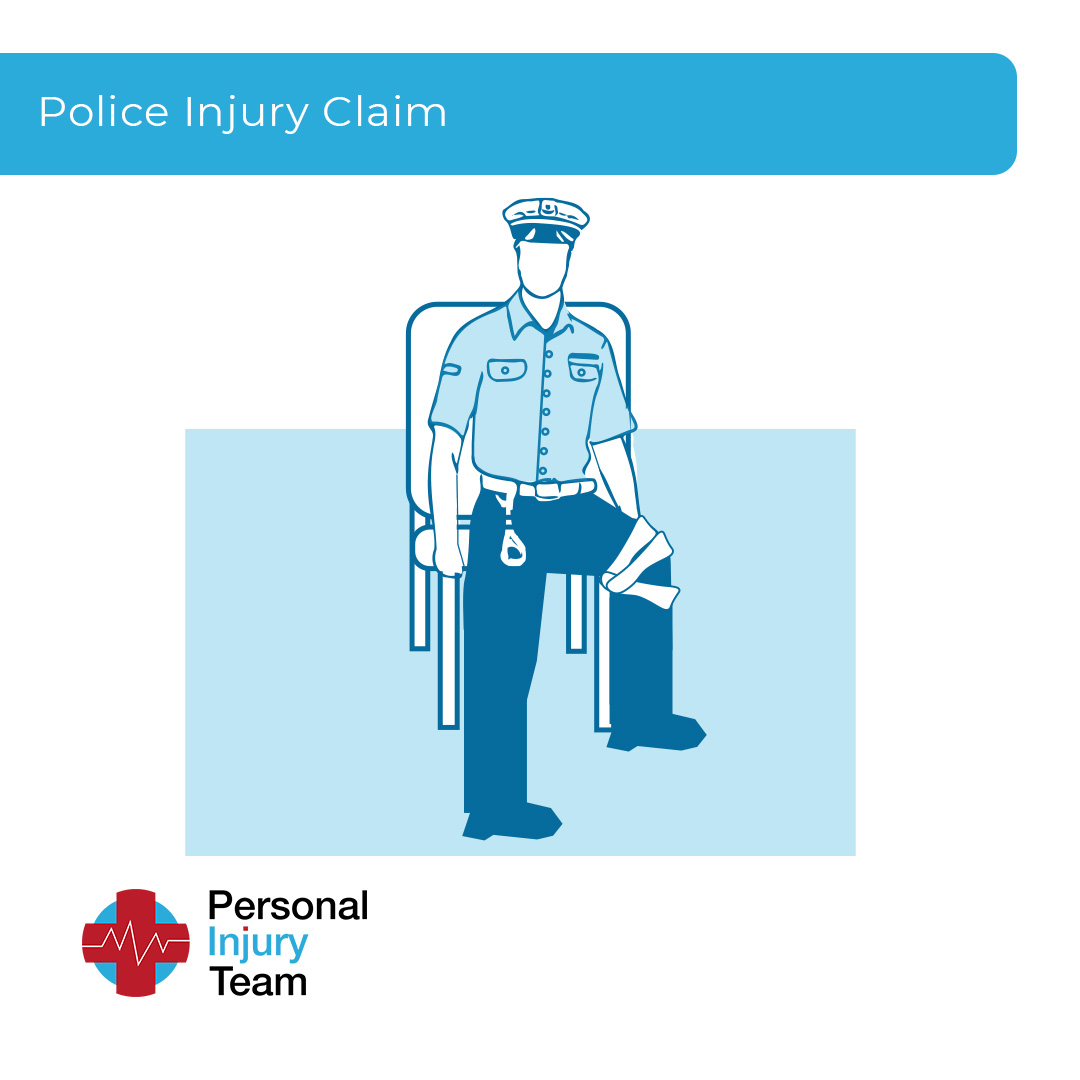
Table of Content
What is a police injury claim?
A police injury claim is when a member of the police force makes a compensation claim for an injury suffered while on duty. Any police officer could suffer an injury while in the workplace and may have a police injury claim.
In a recent research survey involving over 10,000 police officers in the UK, 81% of officers said they experienced an injury or mental health issue in the workplace. 45% of police officers said they needed to take at least a week off work to recover from the effects of the injury. One in five members of the police force report experiencing PTSD due to incidents they encounter while on duty.
An injury while on duty can be a physical as well as a mental health issue. It may take time for a mental health issue to surface, and it may be after the effects of the physical injury have passed.
A police injury while on duty claim may be able to seek compensation for the effects of the injury today and in the future.
A Personal Injury Team solicitor can make your compensation claim for injury while on police duty.
Common injury claims made by police for compensation
Common injury claims made by police for compensation range from injury in a road traffic accident to assault and PTSD. Every police officer puts themselves in danger while on duty, but if they are injured in an accident that was not their fault, they could have a police injury claim.
A police injury claim can be for the broken leg, the knife wound or the nerve damage after a fall, but you may be able to claim compensation for the damages.
Some common police injury while on duty claims:
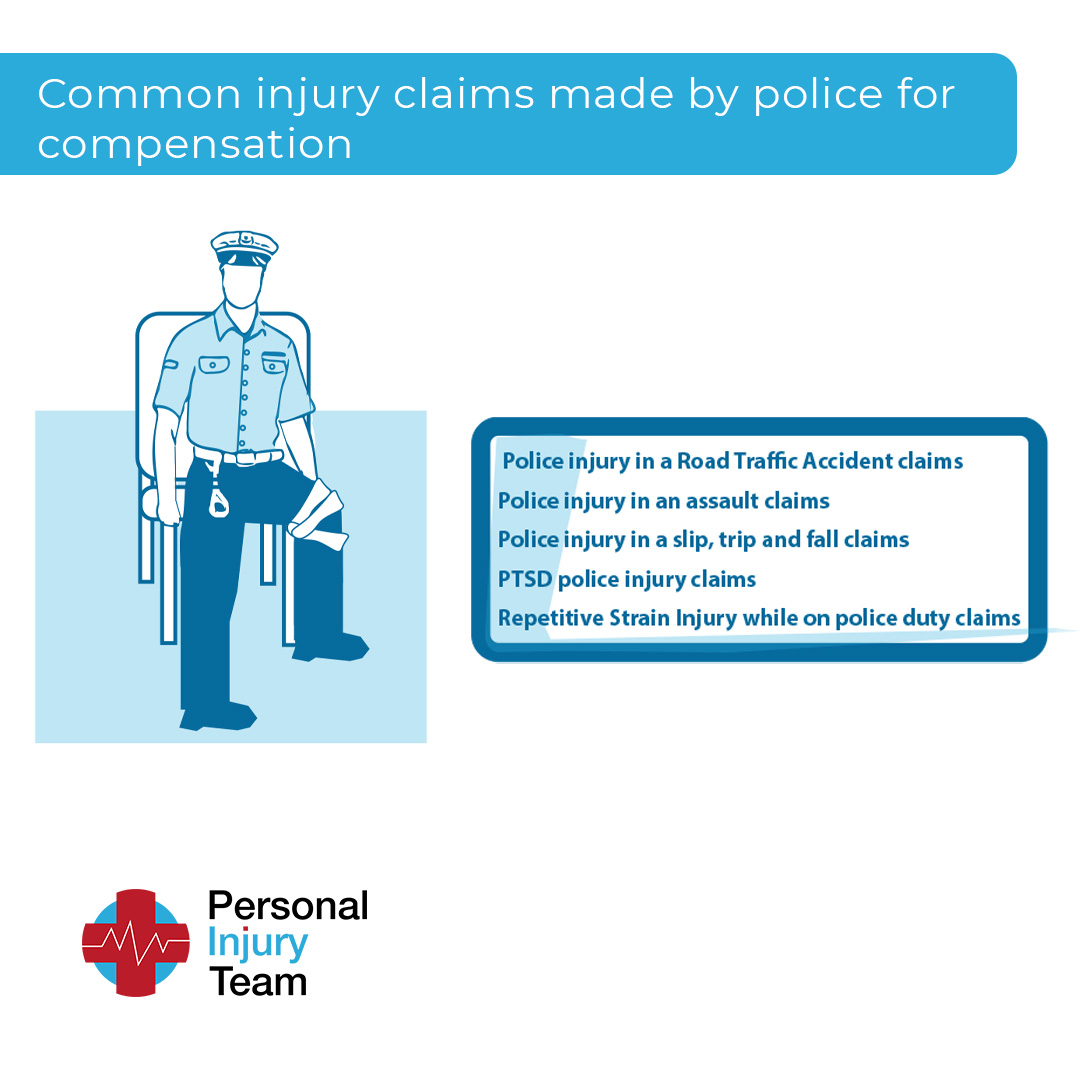
If you suffer an injury while on police duty, you could have a compensation for a police injury claim.
A No Win No Fee personal injury solicitor can handle your claim and seek the compensation you deserve for the police injury while on duty.
Compensation for a police injury claim
Compensation for a police injury claim while on duty can range from more than £10,000 to over £100,000, and some police officers injured in the workplace may see compensation amounts in excess of £10 million.
A police officer injured at work claim could be for the broken jaw in an assault or the stab wound when not issued with protective clothing. The injury while on duty claim could be for the torn ligaments in a slip, trip and fall accident at the police station. An injury in a road traffic accident could put the police officer in line for a compensation claim.
A police injury while on duty could affect your ability to work or find similar work in the future, and you may need time off driving to recover fully from the road traffic accident, assault injury or slip, trip and fall accident.
You can claim compensation for the effects of the police injury today and in the future. The amount awarded depends on the severity of your injury and the impact it has on your life.
Amounts of compensation in a police injury claim are:
(The figures given here are for General Damages amounts only. You will also receive compensation for any financial losses you suffer due to the personal injury. Figures are taken from Judicial College Guidelines 16th Edition and are accurate as of April 2023.)
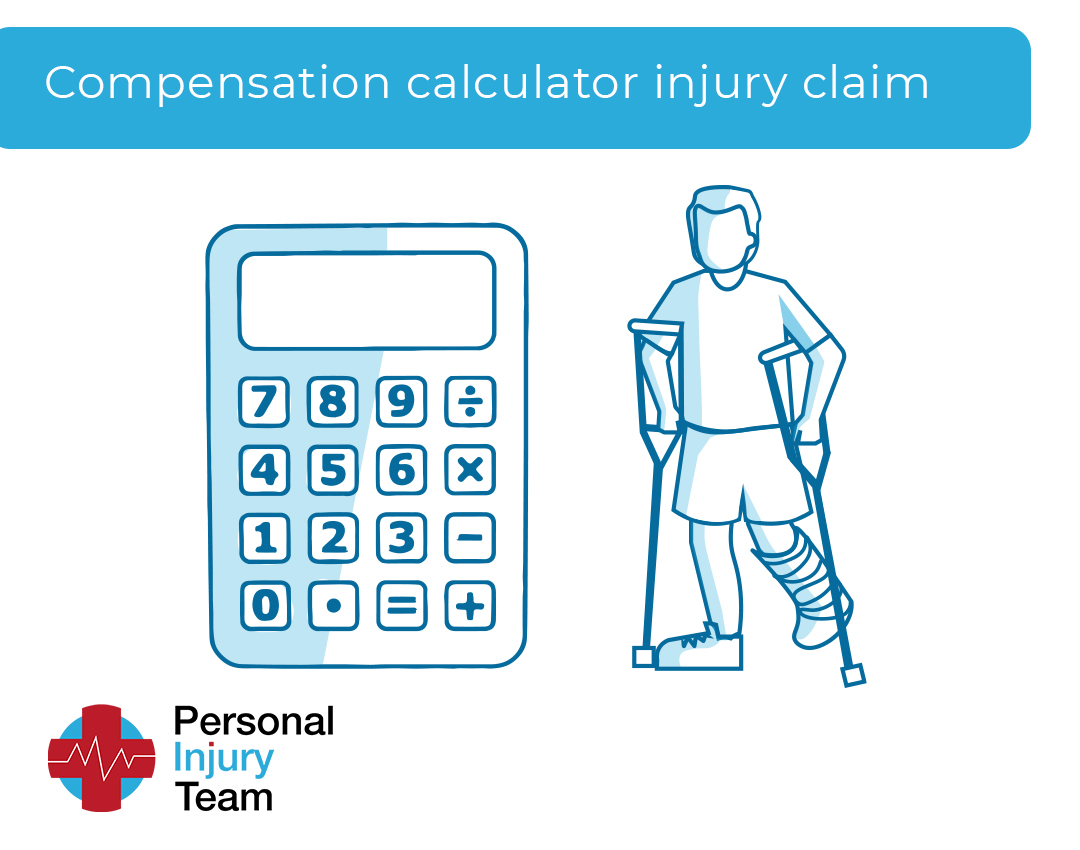
There is not one fixed amount for a police injury claim, and the compensation awarded for the soft tissue injury, stab wound, or broken arm will be tailored to the circumstances of your claim.
A No Win No Fee personal injury solicitor can tell you what to expect from their experience in police officer injury while on duty compensation claims.
Our Process
We make the claim process as simple and streamlined as possible, and that’s one of the reasons we’re maintain a 4.9 / 5 ★ rating from our customers!
Enquiry
The first step is to get in touch and tell us what went wrong. It’s free and easy. Call our 24-hour helpline: 0800 027 0370 or request a callback here.
Claim Evaluation
Once you have spoken with our team we’ll let you know how we can help. This will involve a thorough case review and understanding of the incident, financial damages and physical injuries.
Legal Letter
Once we are satisfied we have all the information we require and have a full understanding of your circumstances. We send a letter of claim to the negligent party outlining your claim and compensation requirements.
What are you being compensated for in a police injury claim?
In a police injury claim, just like any personal injury claim, you are being compensated for two types of damages:
The amount of compensation awarded for your police injury claim is the total of these two types of damages.
Who is eligible to claim for a police injury?
You may be eligible to claim for a police injury if it happens in an accident that was not your fault or wholly your fault while on duty as a police officer.
A police officer may be able to claim for an injury due to a poorly maintained police vehicle or badly-kept police station and carpark. You may also have a claim if in a road traffic accident with another road user while on duty.
Dependents may be able to claim compensation if a loved one cannot represent themselves after a police injury that was not their fault or only partially their fault.
A dependent is defined as:
You may be able to claim compensation if you depend on someone who cannot represent themselves after a police injury, such as a relative shot, or injured in an RTA while on duty, or who may have passed away due to the effects of the police injury.
Your No Win No Fee personal injury solicitor can help with your compensation claim.
How to make a personal injury claim as a police officer
To make a claim for police officer compensation while on duty, there are usually a few standard steps to follow.
Before making a claim and as soon as you suffer an injury while on duty, you should:
A police officer may be injured while on duty due to a breach of duty of care by the police force. You may have a compensation claim if it happens to you.
We will guide you through the entire process from first contact through to the conclusion of your claim.
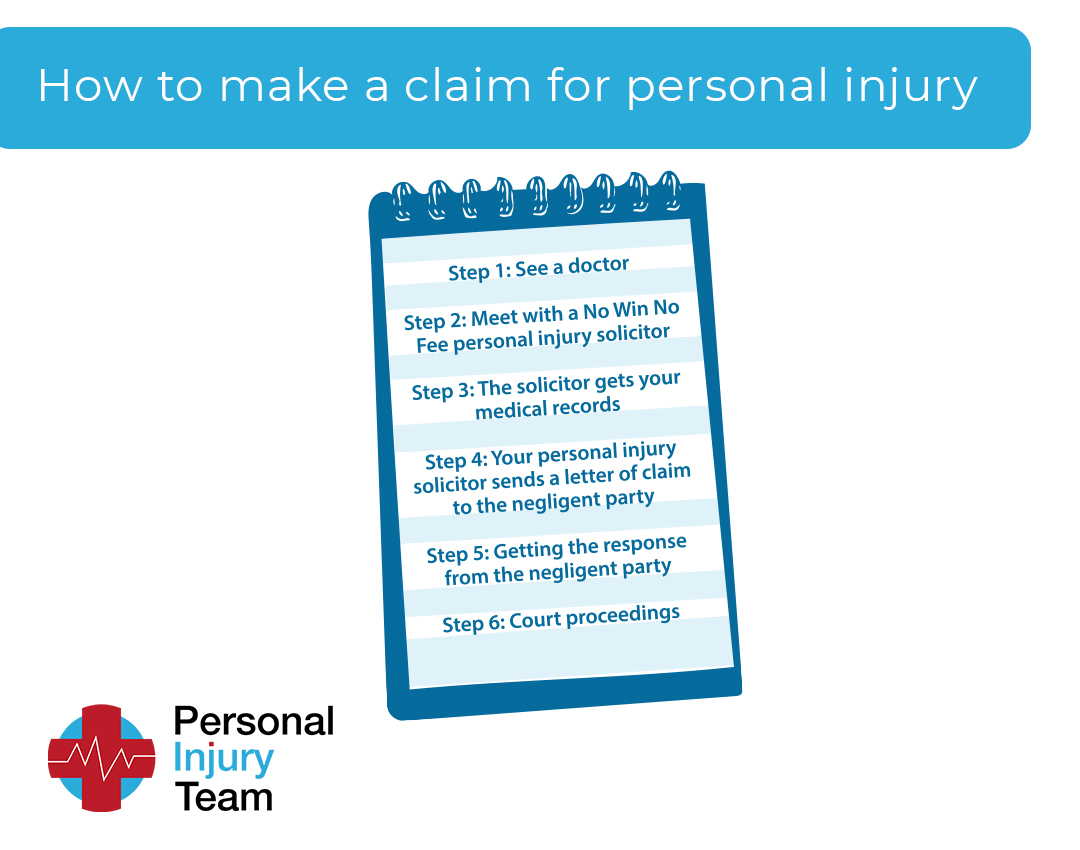
Police road traffic accident claim
A police road traffic accident claim in the UK seeks compensation for the effects of an injury from any form of road traffic accident.
You may be injured while on duty in a car crash, as a pedestrian, as a motorbike rider, a cyclist or when directing traffic, but if the accident was not wholly your fault, you could have a road traffic accident claim.
Police injuries while on traffic duty are also road traffic accident injuries. If your accident may be due to incorrect training, a lack of duty of care by another road user or a poorly maintained police car or van, you could have a compensation claim.
If you are injured in a road traffic accident that was not your fault or not wholly your fault, you may have a police road traffic accident claim.
It may be an RTA claim if your police car is hit from behind by a driver not paying attention or if the brakes fail on a police car that should be in for service. There are many types of road traffic accident claims, and your police officer injury while on duty could be one, too.
A No Win No Fee personal injury solicitor can look at the details of your injury and see if you have a valid police injury road traffic accident compensation claim.
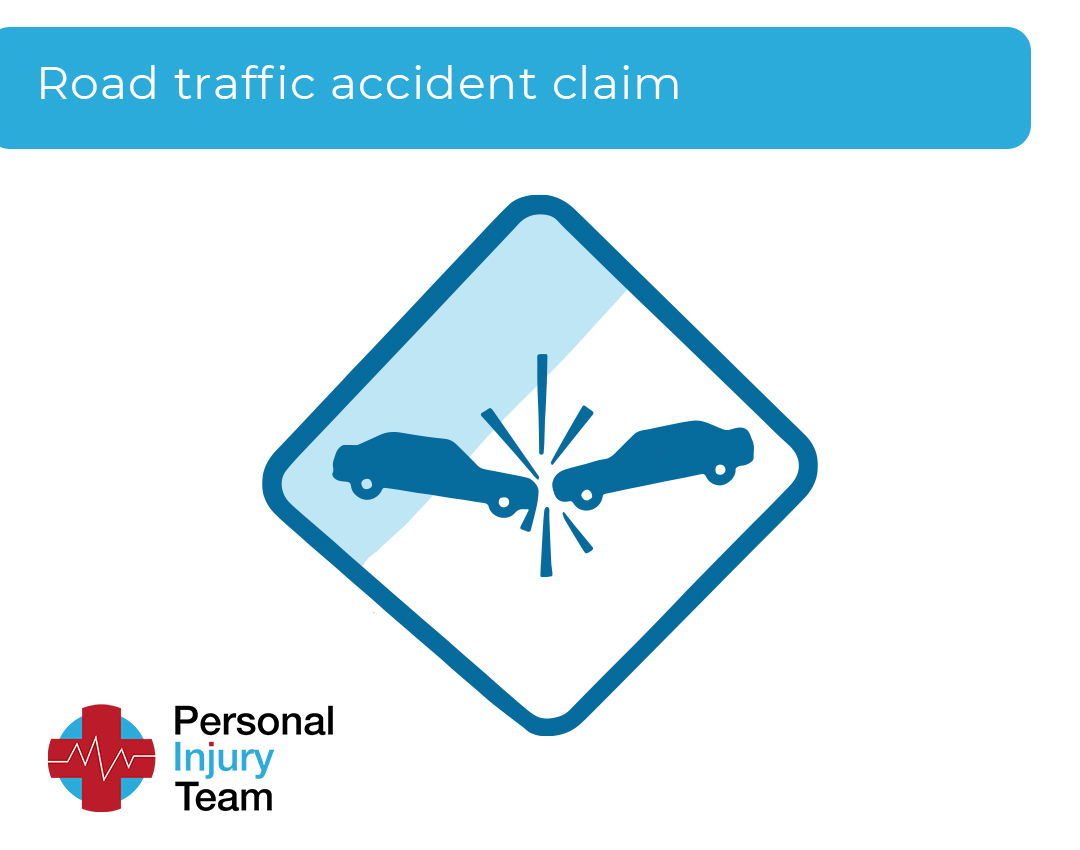
Workplace Injury Claims UK
Workplace injury claims in the police force are for compensation for an injury caused at work, such as the stab injury when not provided with protective gear or the simple slip, trip and fall accident around the police station.
Your employer, the police force, owes you a duty of care, and when they breach that duty of care, causing your police injury, you may have a workplace injury claim.
Employers have a legal duty to provide a safe place to work. A workplace in the police force could be the police station, your police car or van, or anywhere you are investigating a crime.
When on duty as a police officer, you are in the workplace, and wherever you suffer an injury, your employer has a duty of care to you once you are ‘on the clock.’
A police officer has a dangerous job. They could be in danger in the workplace regardless of whether they are at the police station, in the squad car, or even directing traffic at a busy road junction.
Every employer owes a duty of care to employees and avoid workplace accidents by:
You could suffer a police injury at any stage of being on duty, and you deserve workplace protection under the law.
You may have a workplace injury claim if you suffer a police injury that was not your fault or only partially your fault.
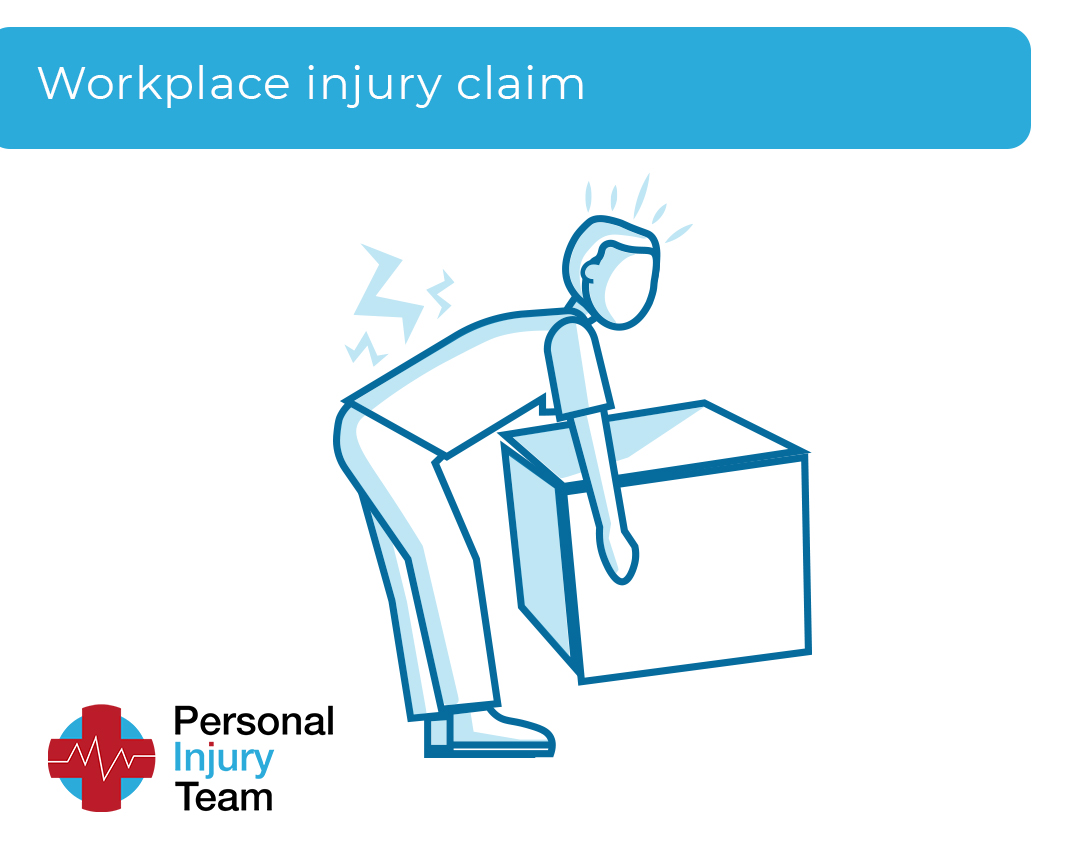
Health and Safety at Work Act 1974
The Health and Safety at Work Act of 1974 outlines the responsibilities of employers and employees when creating a safe workplace for all—a police injury while on duty may be avoidable if the employer follows the Health and Safety Act.
The Act covers every aspect of health and safety in the workplace for the UK and has proved invaluable in the 50 years since its inception.
Standardisation of health and safety guidance makes it clear what is expected in the workplace from employers and employees. Under the 1974 Act, employers know where their duty of care to employees and members of the public lies.
In the same vein, employees are made aware of their duty of care to their fellow employees when at work. The Act also covers the self-employed and the expectations around them as employers and when in the workplace.
The Health and Safety at Work Act 1974 is also known as the HSWA, the HASAWA, the HSW Act and sometimes simply the 1974 Act.
The Act is clear in what the expectations are for everyone in the workplace and how breaches of it may be prosecuted in the courts and be subject to fines or compensation claims when an injury results.
You may be able to make a claim for a workplace injury, such as a police injury, if your employer breaches the HSW Act, leading to your accident.
What can happen if you are fired for making a police injury claim?
If you are fired for making a police injury claim, you may be able to file a further claim for unfair dismissal. You should not lose your job or be passed over for promotion for making a personal injury claim against your employer.
Workers’ rights legislation protects most employees from unfair dismissal, including members of the police force. If you lose your job or fail to be promoted after making a compensation claim, it would be considered an unfair dismissal.
Every police officer has a right to be protected in the workplace under employer legislation. The police force has a duty of care to all officers on duty, and if they breach that duty of care and you suffer an injury as a result, you could have a police injury compensation claim.
A No Win No Fee personal injury solicitor can make your claim for police injury compensation.
Make a police injury claim today
Make a police injury claim today for your injury while on duty by contacting the Personal Injury Team. Use our online assessment tool to determine how much you can claim for your police injury and take that first step to make a claim.
Your PTSD, assault injury, broken limb or soft tissue injury from the workplace injury may be with you for life, and you may be able to claim compensation for the damages involved.
The Personal Injury Team FREE online assessment tool will put you in direct touch with one of our team, who will give you a full rundown of what can happen with your personal injury claim.
Compensation amounts for a police injury while on duty claim vary, and expert advice from one of our team members can help you with an idea of compensation for this or any workplace injury.
Only by contacting one of our team will you get a personal injury claim up and running today.
Contact your Personal Injury Team today for immediate and expert police injury advice tailored to you.
